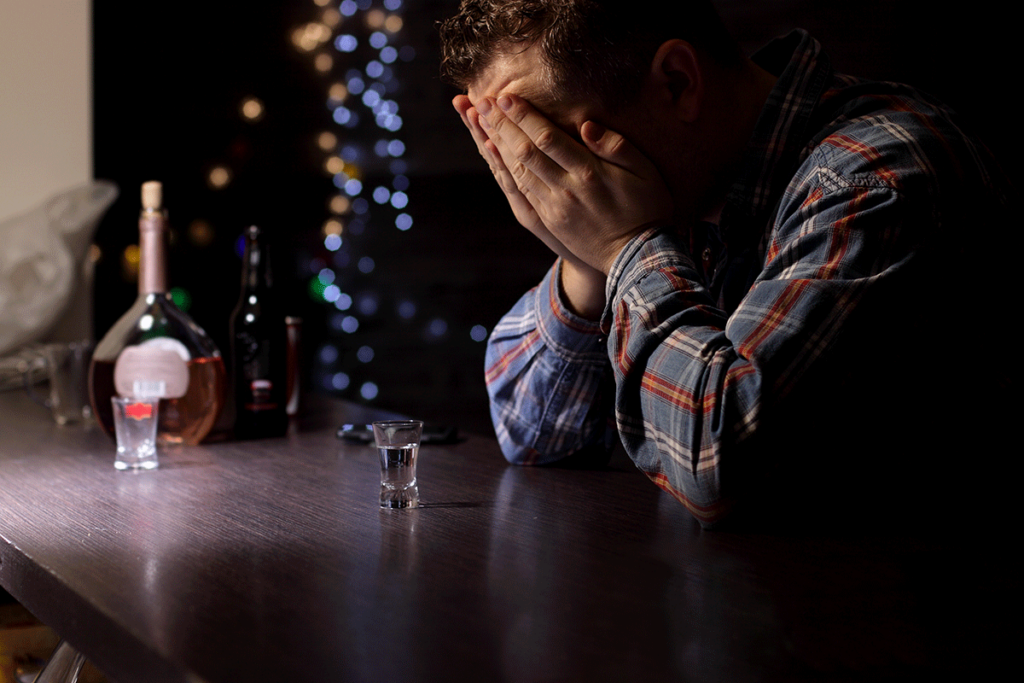Drinker’s remorse is an all too common consequence of a night out. After one too many drinks, a person may wake up with a splitting headache and a foggy memory of the night before. They may feel guilty or embarrassed, or perhaps angry with themself for engaging in behaviors that they regret.
Fortunately, help is available for anyone ready and willing to get help for their problematic drinking. Promises Behavioral Health offers alcohol rehab programs designed to help you break the cycle of alcohol addiction and maintain long-term sobriety. Call 844.875.5609 for more information today.
What Is Drinker’s Remorse?
Drinker’s remorse is a psychological phenomenon experienced by those who drink alcohol to excess. It is characterized by feelings of regret and guilt as the individual reflects on their behavior while under the influence, often feeling embarrassed and ashamed for their actions. People affected by drinker’s remorse will often feel the urge to apologize or make amends in some way for their behavior. This can take the form of saying sorry to those affected or even engaging in self-destructive behaviors such as binge eating or drinking more alcohol in an attempt to numb the guilt and regret.
In many cases, drinker’s remorse is a sign that the individual has gone beyond their limits when it comes to consuming alcohol and that they should take steps to reduce their alcohol intake in order to avoid similar episodes in the future. The best way to deal with the drinker’s remorse is through self-reflection, actively acknowledging the consequences of your actions, and engaging in activities that make you feel healthier and happier, such as exercising or spending time with friends and family. Taking responsibility for your actions and recognizing the need to change is an important step towards overcoming drinker’s remorse and preventing similar episodes in the future.
5 Things That Will Make You Feel Drinker’s Remorse
It is important to remember that there are consequences for every action – and feeling remorse after a night of drinking is a sign that it’s time to make smarter decisions. Below are five examples of things that will make you feel drinker’s remorse.
1. Drinking Too Much, Too Quickly
Drinking too much in a short period of time can lead to intense feelings of embarrassment and guilt. Alcohol is a depressant, so it can lower inhibitions and make it harder to control how much you drink – leading to hangovers and regret the next day.
2. Poor Decision-Making
Alcohol impairs judgment, making it difficult to make smart decisions while drinking. This can lead to regrettable decisions such as getting into a fight or engaging in risky behavior.
3. Unwanted Hookups or Exchanges
When alcohol is involved, people are more likely to act on their impulses and do things they wouldn’t normally do. This can lead to regretful hookups and uncomfortable exchanges that leave people feeling ashamed.
4. Spending Too Much Money
Alcohol is not cheap, and the more you drink, the more money you spend. Feeling guilty about spending too much money on alcohol can be a cause of drinker’s remorse.
5. Crossing Personal Boundaries
Crossing personal boundaries while drinking is common, and it can make the person feel guilty or ashamed afterward. This could include things like talking to strangers or saying something mean to a close friend or family member.
No matter how you got to the point of feeling remorse, there are ways to reverse it – such as making amends, apologizing, or seeking professional help. Taking responsibility for your actions and understanding the risks of excessive drinking can help you prevent it from happening again in the future.
Getting Professional Help for Alcohol Addiction
Getting professional help for alcohol addiction can be a difficult process, but it is also one of the most important steps in ensuring long-term sobriety. Professional treatment offers numerous benefits that are not available with self-management alone.
Some of the many benefits of getting professional help for alcohol addiction include the following:
- Structured, supervised treatment programs that provide support and guidance
- Access to medication-assisted therapies like Naltrexone for alcohol cravings and withdrawal
- Therapeutic services such as cognitive behavioral therapy, family counseling, and individual therapy
- Evidence-based treatments tailored to meet the needs of each individual patient
- Individualized care plans for comprehensive recovery support
- Ongoing monitoring and follow-up care to ensure lasting sobriety
Getting professional help for alcohol addiction can be the first step in a successful journey toward sobriety. It offers numerous advantages that cannot be replicated through self-management alone and can provide essential support for those struggling with alcohol
addiction. With the right professional support and guidance, long-term sobriety is within reach.
Learn More About the Alcohol Rehab Programs at Promises
If you are struggling to cope with feelings of guilt and regret associated with heavy drinking, it is important to seek help from qualified addiction treatment professionals who can provide guidance and support as you strive for a healthier lifestyle. Call Promises at 844.875.5609 or fill out our online contact form to learn how we can help today.

